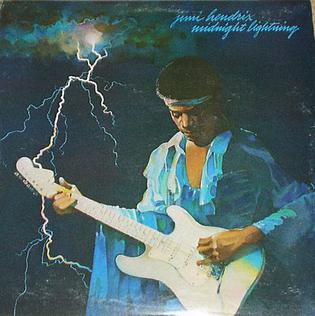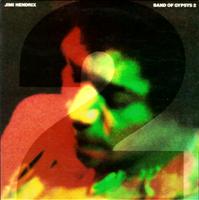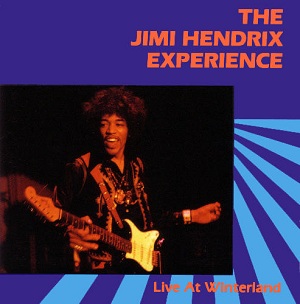
Soft Machine are an English rock band from Canterbury, Kent. The band were formed in 1966 by Mike Ratledge, Robert Wyatt, Kevin Ayers, Daevid Allen and Larry Nowlin. Soft Machine were central in the Canterbury scene; they became one of the first British psychedelic acts, and later moved into progressive and jazz rock. In 1971, Soft Machine became a purely instrumental band. Soft Machine's lineup has undergone many changes, and has included Andy Summers, Hugh Hopper, Elton Dean, John Marshall, Karl Jenkins, Roy Babbington and Allan Holdsworth. As of 2025, the current line-up consists of John Etheridge, Theo Travis, Fred Thelonious Baker and Asaf Sirkis.

Kevin Ayers was an English singer-songwriter who was active in the English psychedelic music movement. Ayers was a founding member of the psychedelic band Soft Machine in the mid-1960s, and was closely associated with the Canterbury scene. He recorded a series of albums as a solo artist and over the years worked with Brian Eno, Syd Barrett, Bridget St John, John Cale, Elton John, Robert Wyatt, Andy Summers, Mike Oldfield, Nico and Ollie Halsall, among others. After living for many years in Deià, Mallorca, he returned to the United Kingdom in the mid-1990s before moving to the south of France. His last album, The Unfairground, was released in 2007. The British rock journalist Nick Kent wrote: "Kevin Ayers and Syd Barrett were the two most important people in British pop music. Everything that came after came from them."

Are You Experienced is the debut studio album by the Jimi Hendrix Experience, released in May 1967. The album was an immediate critical and commercial success, and is widely regarded as one of the greatest albums of all time. It features Jimi Hendrix's innovative approach to songwriting and electric guitar playing, which soon established a new direction in psychedelic and rock music as a whole.

Band of Gypsys is a live album by Jimi Hendrix and the first without his original group, the Jimi Hendrix Experience. It was recorded on January 1, 1970, at the Fillmore East in New York City with R&B musicians Billy Cox on bass and Buddy Miles on drums, a grouping frequently referred to as the Band of Gypsys. The album mixes funk and R&B elements with Hendrix's psychedelic rock guitar and wah pedal-based jamming, an approach which later became the basis of funk rock. It contains previously unreleased songs and was the last full-length Hendrix album released before his death six months later.

Third is a live and studio album by the English rock band Soft Machine, released as their third overall in June 1970 by CBS Records. It is a double album with a single composition on each of the four sides, and was the first of two albums recorded with a four-piece line-up of keyboardist Mike Ratledge, drummer and vocalist Robert Wyatt, saxophonist Elton Dean, and bass guitarist Hugh Hopper. Third marks a shift in the group's sound from their psychedelic origins towards jazz rock and electronic music.

Volume Two is the second album by The Soft Machine, released in 1969. The album combined humour, dada, psychedelia and jazz. In 2000 it was voted number 715 in Colin Larkin's All Time Top 1000 Albums.

The Wilde Flowers were an English psychedelic rock band from Canterbury, Kent. Formed in 1964, the group originally featured lead vocalist Kevin Ayers, lead guitarist and co-lead vocalist Brian Hopper, rhythm guitarist and vocalist Richard Sinclair, bassist Hugh Hopper and drummer Robert Wyatt. Despite not releasing any material during their brief three-year tenure, the band are generally considered to be the originators of the Canterbury scene. After their breakup in 1969, the group's members went on to form numerous key bands within the scene, including Soft Machine, Caravan and Camel.

The Soft Machine is the debut album by the British psychedelic rock band Soft Machine, released in 1968. It is the group's only album to feature Kevin Ayers as a member.

South Saturn Delta is a posthumous compilation album by American rock musician Jimi Hendrix. Released in 1997 by Experience Hendrix, it consists of material such as demo tapes, unfinished takes and alternate mixes, and previously released material, most of which Hendrix had been working on prior to his death in 1970.
Soft Heap was a Canterbury scene and jazz-rock supergroup founded in January 1978 and active throughout the Eighties.

Crash Landing is a posthumous compilation album by American guitarist Jimi Hendrix. It was released in March and August 1975 in the US and the UK respectively. It was the first Hendrix album to be produced by Alan Douglas.

Midnight Lightning is a posthumous compilation album by American rock guitarist Jimi Hendrix. It was released in November 1975 by Reprise Records in the US and Polydor Records in the UK. It was the second to be produced by Alan Douglas and Tony Bongiovi and contains demo-type recordings that were overdubbed with musicians who had never played with Hendrix. Despite including reworkings of the popular live songs "Hear My Train" and "Machine Gun", the album was not as well received as its predecessor, peaking at numbers 43 in the US and 46 in the UK.

Joy of a Toy is the debut solo album of Kevin Ayers, a founding member of Soft Machine. He is accompanied on the LP by pianist and arranger David Bedford as well as his erstwhile Soft Machine colleagues Robert Wyatt and Mike Ratledge, and his eventual replacement Hugh Hopper, who had previously worked with him in the semi-pro band Wilde Flowers. Among the session musicians are cellist and arranger Paul Buckmaster, jazz bassist Jeff Clyne, oboist Paul Minns and drummer Rob Tait.

Live in Ottawa is a posthumous live album by the Jimi Hendrix Experience, released on October 23, 2001 by Dagger Records. The album documents the band's second performance at the Capitol Theatre in Ottawa, Ontario, Canada, on March 19, 1968. Three tracks from the first set were later issued in September 2008 on Live in Paris & Ottawa 1968.

Band of Gypsys 2 is a posthumous live album by American rock musician Jimi Hendrix, released in October 1986 by Capitol Records. Produced by Alan Douglas, it followed the live mini LP Johnny B. Goode (1986), which also included live recordings from the Atlanta International Pop Festival (1970) and the Berkeley Community Theatre (1970).

Live at Winterland is a live album by The Jimi Hendrix Experience. It compiles performances from the band's three concerts at the Winterland Ballroom in San Francisco, where they played two shows each night on October 10, 11 and 12, 1968. The album was released posthumously by Rykodisc in 1987 and was the first Hendrix release to be specifically conceived for the compact disc format.

Live in Paris & Ottawa 1968 is a posthumous live album by the Jimi Hendrix Experience, released on September 5, 2008, by Dagger Records. The album contains songs from the band's performances at the L'Olympia Theatre in Paris on January 29, 1968, and the Capitol Theatre in Ottawa, Ontario, Canada, on March 19, 1968.

Banana Moon is the debut solo album by Australian singer/songwriter/guitarist and Gong leader Daevid Allen, released in July 1971 on the French BYG Actuel label. The album is sometimes referred to as Bananamoon and it was also reissued as a Gong album.

Theatre Royal Drury Lane 8th September 1974 is a 2005 live album by English progressive rock musician Robert Wyatt, documenting a concert on that date at the Theatre Royal, Drury Lane in London. The concert took place the year after Wyatt had fallen from a fourth-storey window and become paralysed from the waist down. Since the accident, Wyatt has used a wheelchair. The concert remains Wyatt's first and only live performance as a headlining solo artist.

















